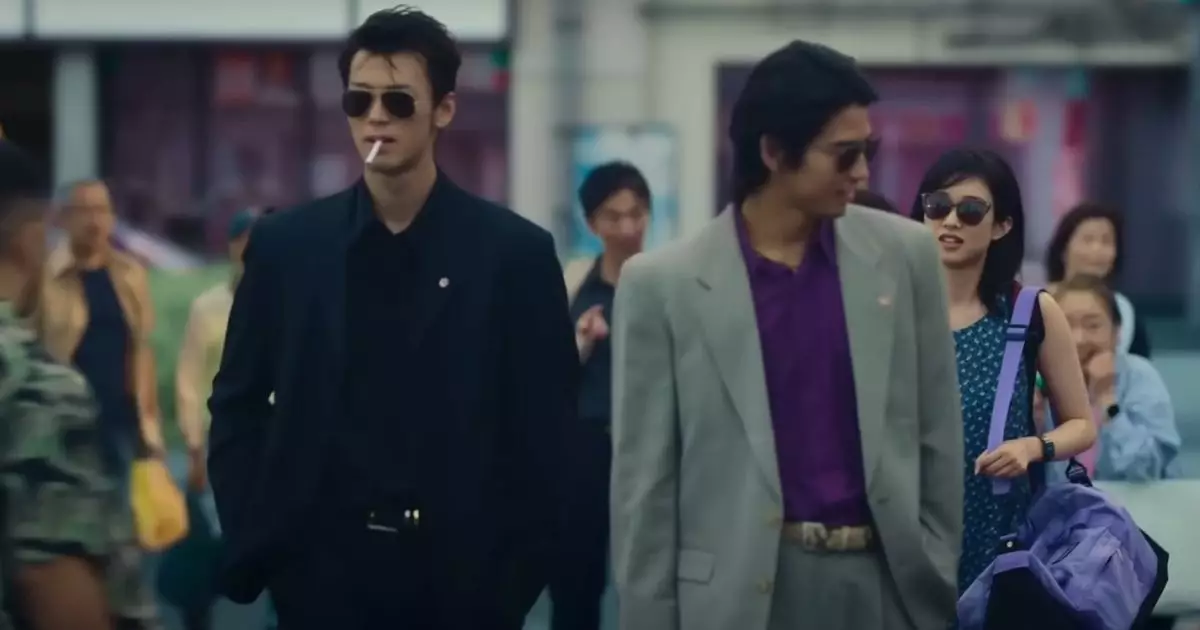The recent trailer for Amazon’s upcoming “Like A Dragon: Yakuza” series has created a buzz among fans of the iconic franchise. With the perfect blend of caution and optimism, many are preparing to embark on this journey. As an ardent enthusiast of the Yakuza universe, I find myself at a crossroads, curious yet apprehensive. While the series appears to lean more towards a serious narrative rather than the absurdist humor that has characterized the games, there’s a palpable sense of divergence from the game’s narrative thread. This article endeavors to explore what this adaptation could unveil about the Yakuza mythos and how it balances fidelity to its source material with a fresh interpretation.
At first glance, the intention behind this adaptation seems clear: to gravitate away from the eccentricities that fans of the game have come to love, favoring a more grounded exploration of Yakuza life. The trailer presents Kiryu as a figure embroiled in a volatile underworld, emphasizing a gritty and serious tone. Gone are the whimsical subplots about racing miniature cars or encountering bizarre informants. Instead, the series roots itself in the existential struggles of its characters, suggesting a narrative focus that might alienate some die-hard fans while appealing to a broader audience. This pivot raises questions about the essence of the Yakuza franchise. Can the emotional weight that the games often denotes be retained when it’s framed within a more serious context?
The official synopsis lays the groundwork for the plot while highlighting key characters. Set in 1995, the story traverses the lives of Kiryu and his friends as they navigate a dangerous heist, illustrating the socio-economic constraints propelling them into the criminal underbelly. While the premise is rife with potential for deep character study, one must wonder how well the series will flesh out these relationships over the course of its run. Will it merely touch upon Kiryu’s friendships, or fully explore the emotional distance and tension between these characters?
The teaser hints at a flashback structure, which can serve to deepen our understanding of these relationships. However, narratively, this can be a double-edged sword. When storytelling oscillates between timelines without sufficient cohesion, it can leave viewers more confused than engaged. The delicate machinery that binds friendships and betrayals in the Yakuza games represents an integral part of the series’ heart; if the adaptation fails to intricately weave these storylines, it risks losing audience empathy.
One of the most compelling aspects of the Yakuza games has always been their exploration of complex human issues. The potential for stories about helping those in distress is abundant within the Yakuza world’s violent, yet deeply personal narrative landscape. The juxtaposition of violent crime against themes of loyalty, loss, and redemption is crucial in understanding the Yakuza ethos. Adapting this effectively into a television format presents a formidable challenge; the essence of these themes must remain intact to resonate with both seasoned fans and newcomers.
While the show aims to distance itself from the memorable eccentricities of its video game predecessor, one hopes it doesn’t shy away from capturing the underlying ethical quandaries that define the franchise. A pivotal episode could see Kiryu aiding characters in crisis—like Mr. Masochist struggling with his past traumas—that might serve to remedy betrayals, further elongating the narrative threads of redemption.
The Familiar Beats of the Yakuza Cycle
Fans familiar with the franchise will inherently anticipate the cyclical nature of storytelling that has been a hallmark of the Yakuza saga. The journey of Kiryu, full of turmoil, bonds, and brutal battles, underscores a narrative style where violence breeds violence. The glimpses of familiar set pieces in the trailer hint at this theme—an inevitable confrontation at Kamurocho’s Millennium Tower, a staple in the Yakuza games. Despite the change in format, it is vital that the series preserves this characteristic rhythm, ensuring that the essence of the Yakuza experience remains fully intact.
In closing, while the “Like A Dragon: Yakuza” series carries the weight of expectation, it also presents an opportunity for rich narrative exploration that can resonate well beyond its gaming roots. The path it takes will be pivotal in determining whether it captures the spirit of Yakuza—holding true to its origins while forging a new identity on the screens. Fans, including myself, will be watching closely, keen to see if the series can conquer the challenges of adaptation and deliver a story worth telling.


Leave a Reply